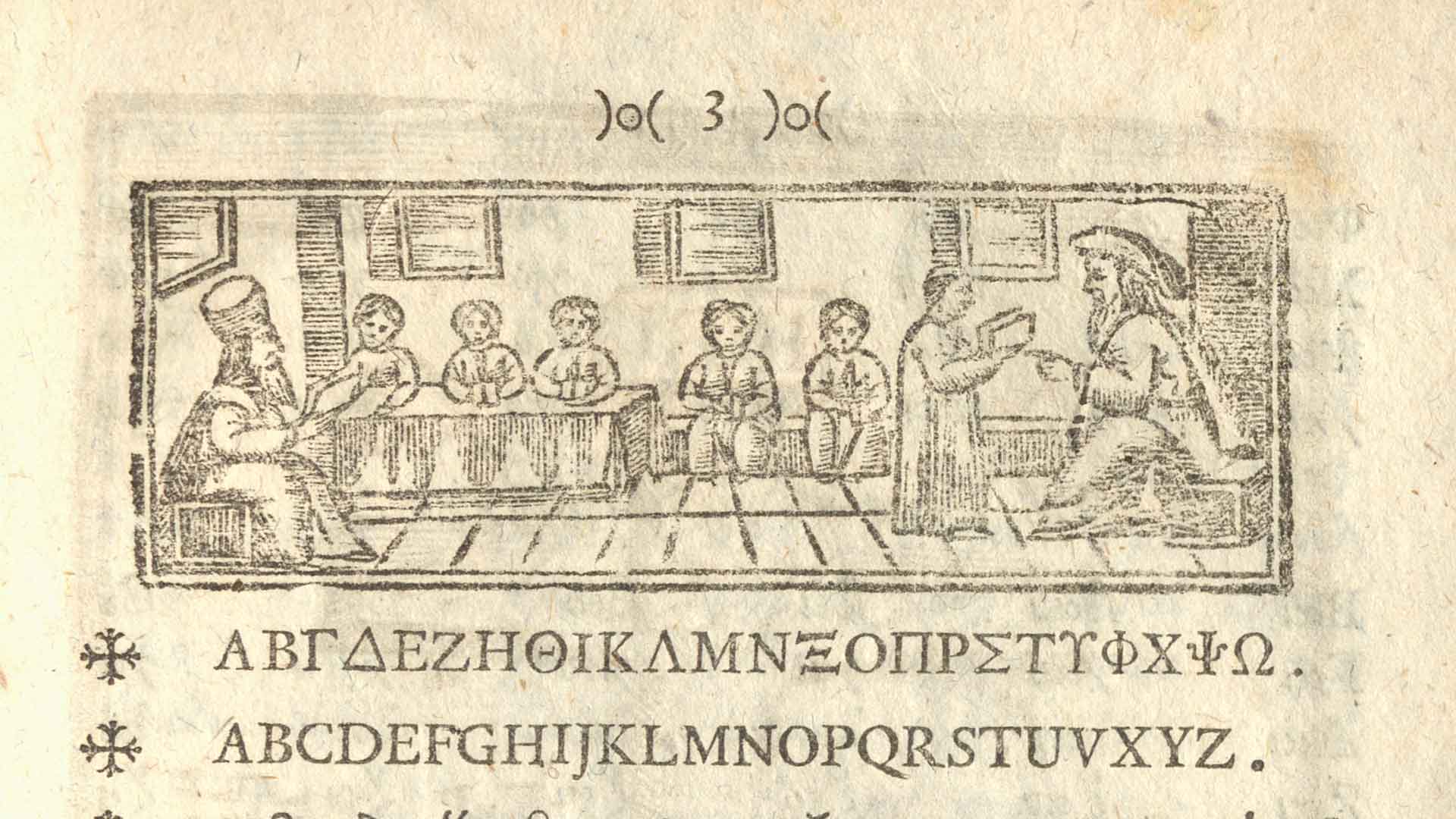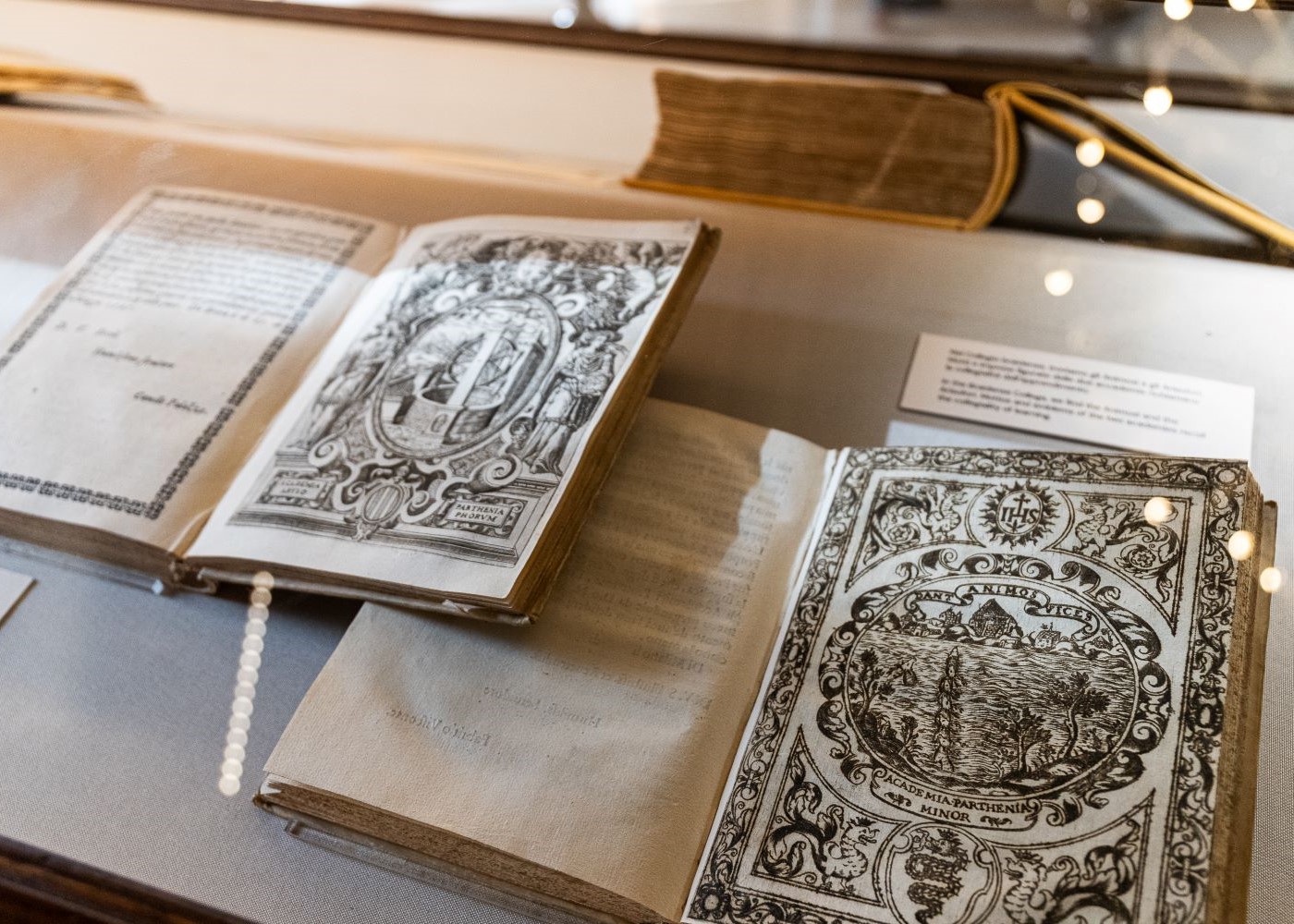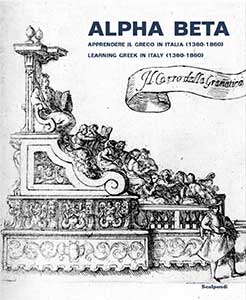
Alpha Beta
LEARNING GREEK IN ITALY. 1360-1860

The exhibition Alpha Beta: Learning Greek in Italy (1360-1860) traces, through seventy volumes of great significance, a unique half-millennium history: the uninterrupted transmission of Greek in Italy from the mid-14 th century onwards.
Setting out from the topical question on the usefulness of learning Greek today, the journey revolves around some fundamental milestones of the cultural life of the Italian peninsula, from Humanistic Florence to Milan during the Romanticism. Visitors, whether they are students currently grappling with the subject or more experienced enthusiasts of classicism, will not only rediscover this glorious tradition in all its complexity but also relive the joys and sorrows of those who, over the centuries, engaged in learning Greek.

Dettaglio, "Paidagogia", Venice, N. Glykys, 1811. Milan, Biblioteca Nazionale Braidense, ZCC.II.9/9, pp. 1-3.
The exhibition narrative looks at textbooks, study copies, translations, and iconographic supports, in a continuous exchange between manuscript and print. In particular, the display explores the learning of Greek through the interaction between students and their study texts: underlining them, taking notes, occasionally also getting distracted and doodling on them.
The exhibition is divided into six sections that retrace the main stages of the study of Greek: from Byzantium to Italy; from manuscript to printed books; the sixteenth century; the Jesuits’ legacy; enlightening innovations; the rise of the vernacular.
Braidense National Library, Maria Teresa Room
(double entrance from the Braidense Library and the Pinacoteca di Brera)
29.9 – 9.12 2023
Free admission without reservation
- Mondays: 9:30 a.m.-6 p.m. (access only from the Library and last entry at 5:30 p.m.) with free guided tours for schools, organized groups or individual visitors (dates and times will be available in mid-September);
- Tuesday through Friday: 9:30 a.m.-6 p.m. (last admission 5:30 p.m.);
- Saturday 9:30 a.m.-1:30 p.m. (last admission 1 p.m.).
The public will have the opportunity to view a rich path thanks to the high-level scientific curation, including fifty-one volumes from the Braidense Library and nineteen on loan from city libraries (Veneranda Biblioteca Ambrosiana and Archivio Storico e Biblioteca Trivulziana), state libraries (Biblioteca Nazionale Centrale di Firenze, Biblioteca Nazionale Marciana di Venezia, Biblioteca Nazionale di Napoli, Biblioteca Universitaria di Genova), and Italian and foreign private institutions (Biblioteca della Fondazione Raffaele Mattioli per la storia del pensiero economico, Archivio dei Quaderni di Scuola/Associazione Quaderni Aperti, Fondazione Aikaterini Laskaridis di Atene).
Exemplars of exceptional rarity will be exhibited, such as an autograph manuscript by Leontius Pilatus, one of the pioneers of Greek teaching in Italy, some of the oldest and most elusive Greek editions ever printed, and, above all, the only known manuscript written by Aldus Manutius
himself.

Emblemi delle Accademie del Collegio Braidense.
The exhibition, set up in the Maria Teresa Hall of the National Braidense Library, will be accessible through guided tours and free workshops for schools and the public. Numerous collateral initiatives will also be offered in collaboration with local scientific institutions and cultural entities, including a series of talks organised by the Italian Philhellenic Society.
Curated by Geri Della Rocca de Candal, Paolo Sachet, and Marina Zetti.
ALPHA BETA
Learning greek in italy (1360-1860)
By Geri Della Rocca de Candal, Paolo Sachet, Marina Zetti, Scalpendi Editore, p. 160
It is no coincidence that Western philosophy saw the light in Greece. Our ability to develop abstractions is largely determined by the language we speak, and Greek is a formidable language: elegant, precise, creative. Another distinctive trait is its complexity. Not only does it use a different alphabet, but it is far too easy to get lost in its labyrinth of accents, rules, and exceptions. As this exhibition shows, the study of Greek in Italy has a unique tradition in terms of continuity and dissemination. Regardless of the individuals’ passion, capabilities, and performance, students over the centuries have struggled with Greek, and all, just like today, have indulged in occasional moments of distraction.
Happens in Braidense
Biblioteca Nazionale Braidense offers a rich panorama of events, lectures, presentations, conferences. Discover the calendar of our activities.







